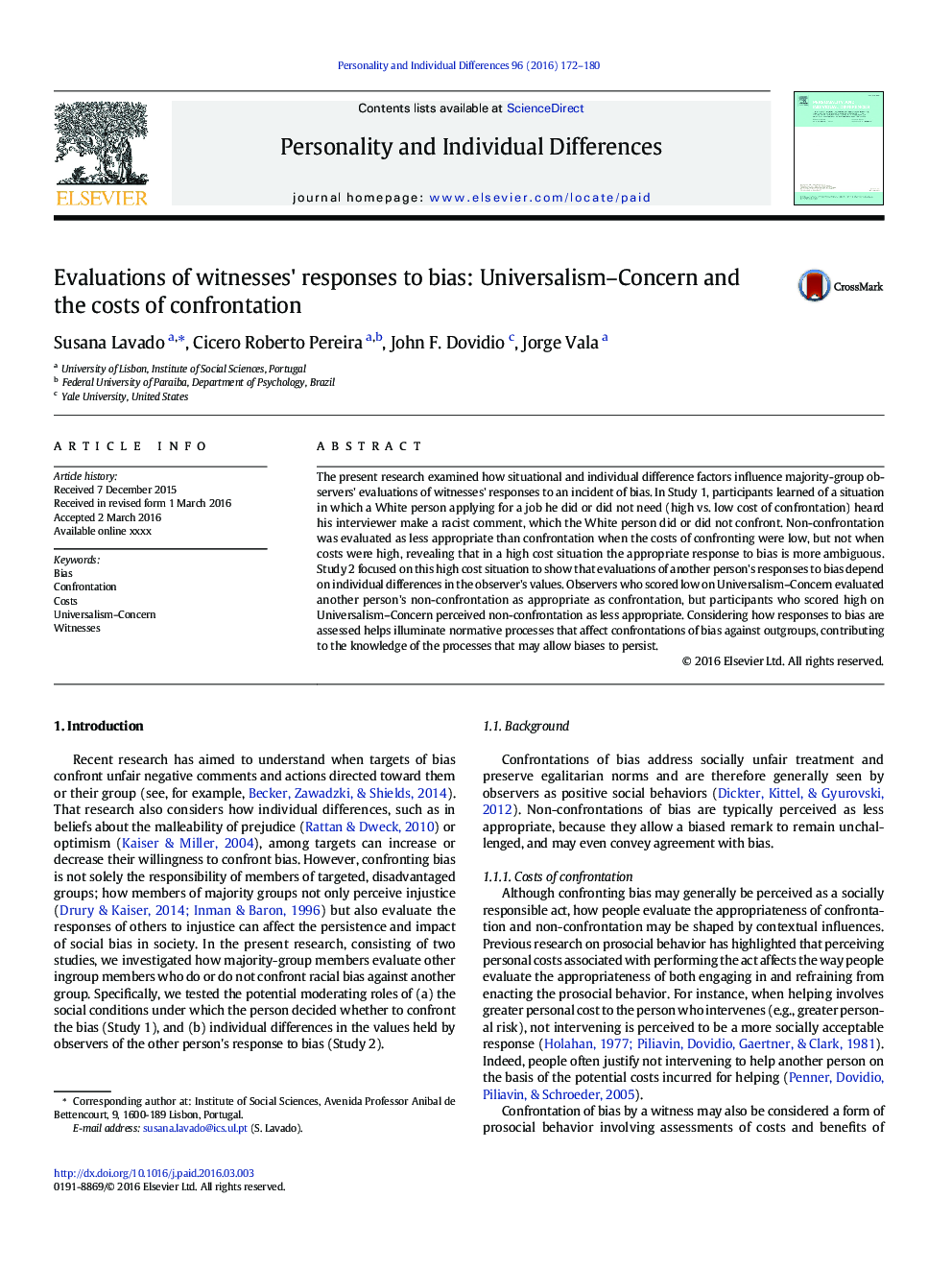| Article ID | Journal | Published Year | Pages | File Type |
|---|---|---|---|---|
| 7250110 | Personality and Individual Differences | 2016 | 9 Pages |
Abstract
The present research examined how situational and individual difference factors influence majority-group observers' evaluations of witnesses' responses to an incident of bias. In Study 1, participants learned of a situation in which a White person applying for a job he did or did not need (high vs. low cost of confrontation) heard his interviewer make a racist comment, which the White person did or did not confront. Non-confrontation was evaluated as less appropriate than confrontation when the costs of confronting were low, but not when costs were high, revealing that in a high cost situation the appropriate response to bias is more ambiguous. Study 2 focused on this high cost situation to show that evaluations of another person's responses to bias depend on individual differences in the observer's values. Observers who scored low on Universalism-Concern evaluated another person's non-confrontation as appropriate as confrontation, but participants who scored high on Universalism-Concern perceived non-confrontation as less appropriate. Considering how responses to bias are assessed helps illuminate normative processes that affect confrontations of bias against outgroups, contributing to the knowledge of the processes that may allow biases to persist.
Keywords
Related Topics
Life Sciences
Neuroscience
Behavioral Neuroscience
Authors
Susana Lavado, Cicero Roberto Pereira, John F. Dovidio, Jorge Vala,
